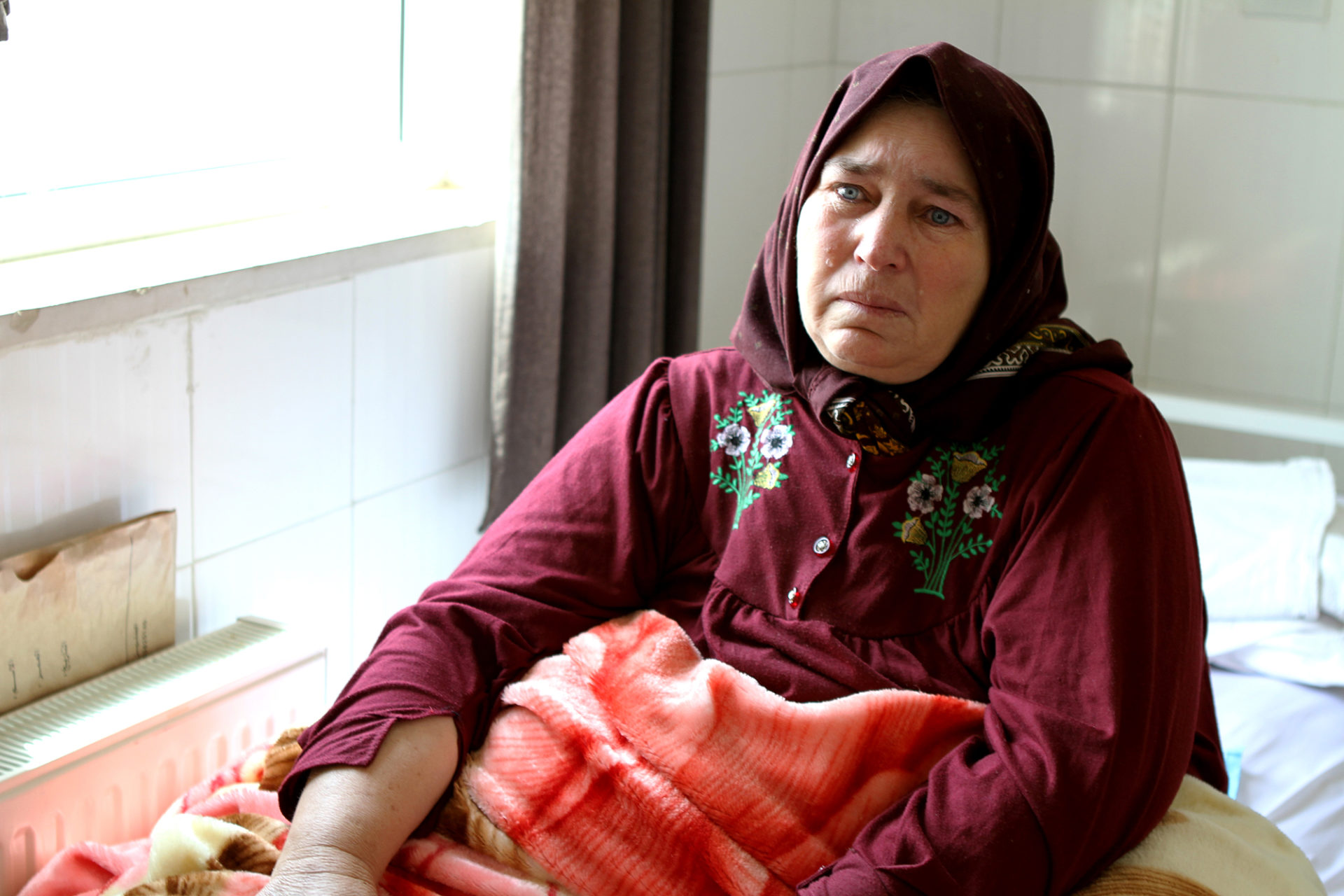
Open Letter to the United Nations Security Council on the Syria Cross-Border Resolution
The United Nations Security Council has until July 10 to renew the Syria cross-border resolution, which ensures lifesaving U.N. aid reaches over four million Syrians living in areas outside of the Government of Syria’s control.
NGO leaders are calling on the Security Council to renew the resolution for a period of 12 months and to re-authorize U.N. access to Northeast Syria to ensure vulnerable populations are able to receive the aid they need as humanitarian agencies struggle to scale up and respond to COVID-19.
Read the full letter below.
Excellencies,
The United Nations Security Council is now faced with a monumental decision. By July 10, the Council must act to ensure millions of Syrian civilians are not denied access to timely, life-saving humanitarian assistance. It must vote to renew Resolution 2504 (2165), thereby ensuring UN aid can continue to be provided cross-border in a principled manner, on the basis of need alone. Few decisions are so grave as this one, particularly in the midst of the worst pandemic the world has seen in over a hundred years.
For more than four million Syrians who live in areas outside of the Government of Syria’s control, the cross-border mechanism is a critical lifeline providing food, shelter, hygiene, and critical medical services. Without it, people will go hungry and will be denied access to critical healthcare services, including those needed to respond to COVID. Simply put, lives will be lost.
Without a resolution that secures access for 12 months humanitarian actors will be unable to adequately prepare for and respond to the spread of COVID-19. The humanitarian response in places such as Idlib, where 76% of the population are women and children, and which saw an unprecedented displacement earlier this year, is already struggling. It is struggling despite the highest volume of aid being delivered cross-border in the entire history of the UN mechanism.
Furthermore, years of conflict have pushed Syria’s health system to breaking point. Hospitals have been damaged and destroyed, often deliberately by warring parties, qualified medical personnel have been forced to flee, and populations are almost entirely reliant on international aid for medical supplies such as PPE and vaccinations. A COVID-19 outbreak would tip a critically weak health system to breaking point. The rapidly deteriorating economy in areas served by cross-border actors, particularly in Northwest Syria also contributes to populations becoming ever more reliant on international aid.
In Northeast Syria, the Council’s decision in January to restrict the UN’s access through the removal of the Al Yarubiyah crossing point has had fatal consequences. Tragically the already weak healthcare sector in the region has suffered the biggest blow. Despite a handful of cross line deliveries since January, only about 31% of the healthcare facilities that were previously supported through Al Yarubiyah have been supplied, and NGOs are unable to fill the gaps that have been left. With six COVID-19 cases already confirmed in Northeast Syria, and the real number likely much higher, 11 health facilities are at risk of closure or disruptions, we are facing a critical shortage of PPE, ventilators, hospital beds, and NGO warehouses are completely out of stock of 29 medicines classed as ‘essential’. The Council has the power to address these gaps by re-authorising UN access through Al Yarubiyah.
In Northeast and Northwest Syria, such gaps in healthcare capacity mean prevention of COVID-19 transmission is crucial. Yet for people living in overcrowded displacement camps, with limited and irregular access to water and sufficient sanitation, regular handwashing and social distancing are almost impossible. This is a potentially fatal cocktail of a highly vulnerable and densely packed population, faced with a global pandemic and none of the tools needed to stop or respond to a mass outbreak of the virus.
The humanitarian justification for this resolution remains as valid today as when it was first authorised in 2014 and even more so with the spread of COVID-19. Principled humanitarian action through both cross-line and cross-border modalities remains the only way to support the 11.1 million Syrians in need of assistance. The renewal of Resolution 2504 authorising cross-border assistance through Bab al-Hawa and Bab al-Salam for a minimum of twelve months and the re-authorisation of the Al Yarubiyah crossing are key to achieve this objective. There is no alternative, and no possible way to scale up the response to COVID-19 without it.
We look to the Security Council to ensure that this vital lifeline is extended to all Syrians so they can do their part to defeat the global pandemic. COVID-19 calls for global solidarity and action to ensure we do not leave the most vulnerable behind. Now is not the time to scale back humanitarian access.
Yours sincerely,
David Miliband
President & Chief Executive Officer
International Rescue Committee
Inger Ashing
Chief Executive Officer
Save the Children
Jan Egeland
Secretary General
Norwegian Refugee Council
Andrew J. Morley
President & Chief Executive Officer
World Vision International
Sofía Sprechmann Sineiro
Secretary General
CARE International
Manuel Patrouillard
Global Managing Director
Humanity & Inclusion – Handicap International
Samuel A. Worthington
Chief Executive Officer
InterAction
Henriette Killi Westhrin
Secretary General
Norwegian People’s Aid
Beth deHamel
Interim Chief Executive Officer
Mercy Corps
Alexandre Giraud
Chief Executive Officer
Solidarités International
Els Hertogen
General Director
11.11.11
Othman Moqbel
Chief Executive Officer
Syria Relief
Dr. Zaher Sahloul
President
MedGlobal
Nadia Alawa
Chief Executive Officer
NuDay
Šimon Pánek
Chief Executive Officer
People in Need
Novella Mori
Executive Director
Un Ponte Per
Negin Tagavi
Secretary General
SWEDO – The Swedish Development Aid organization
Mufaddal Hamadeh, MD
President
Syrian American Medical Society
Dr. Corinna Schäfer
Co-Chair
CADUS e.V
Osman Dulgeroglu
Chief Executive Officer
Embrace Relief
Dr. Jihad Qaddour
President
Syria Relief and Development (SRD)
Mohamed Yaser Tabbara Esq
Chairman
American Relief Coalition for Syria (ARCS)

